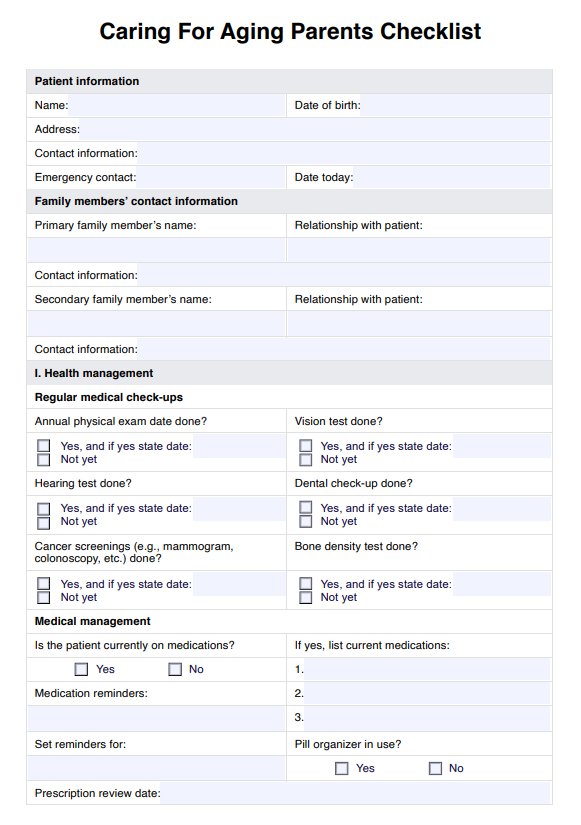Maintaining open communication while setting clear boundaries ensures their feelings and autonomy are respected. Collaborate with health care providers or elder law attorneys for guidance and involve family members to share responsibilities.

Caring For Aging Parents Checklist
Download Carepatron's free PDF checklist template and example for caring for aging parents. Provide the best care possible for your elderly patients and their families.
Caring For Aging Parents Checklist Template
Commonly asked questions
Indicators include physical challenges like mobility issues, declining hygiene, missed medical appointments, or noticeable cognitive decline. Financial mismanagement, unsafe living conditions, or signs of isolation also suggest they may require assistance.
Practice patience and empathy while acknowledging the emotional toll the aging process can take on all parties involved. Seek support from caregiver groups, counseling services, or trusted loved ones to process feelings effectively.
EHR and practice management software
Get started for free
*No credit card required
Free
$0/usd
Unlimited clients
Telehealth
1GB of storage
Client portal text
Automated billing and online payments











